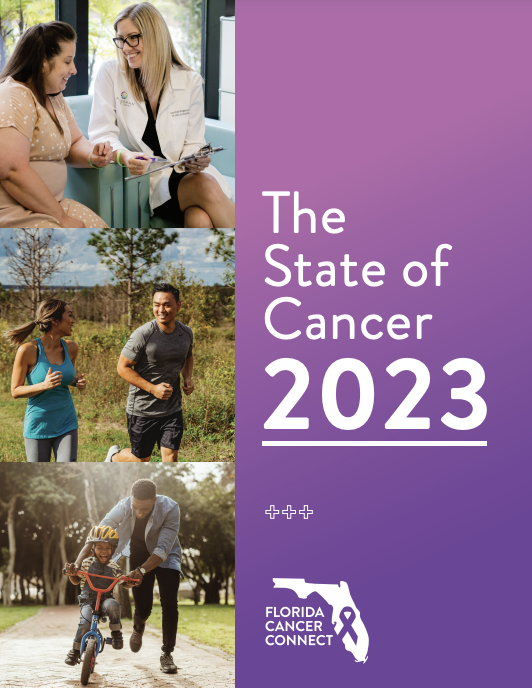It's a New Day in Public Health.
The Florida Department of Health works to protect, promote, and improve the health of all people in Florida through integrated state, county, and community efforts.
Cancer
Contact the Florida Cancer Program
 Since 2014, cancer has been the second leading cause of death in Florida, after heart disease.
Since 2014, cancer has been the second leading cause of death in Florida, after heart disease.
Florida has the second highest cancer burden in the nation. Between 2021-2023, the total number of cancer deaths in Florida was 140,955.
Cancer is not just one disease but many diseases. There are more than 100 different types of cancer. Cancer occurs when abnormal cells divide without control and are able to invade other tissues. Most cancers are named for the organ or type of cell in which they start.
There’s an average of 115,000 new cancers diagnosed and reported each year to the statewide Cancer Registry, the Florida Cancer Data System.
Behavioral and dietary risks are leading the risks of cancer, including high body mass index, low fruit and vegetable intake, lack of physical activity, tobacco use, and alcohol use.
The Centers for Disease Control and Prevention provide funding for cancer programs to address breast, cervical, and colorectal cancer. For information on these cancer types and the state programs, visit:
Learn more about what the state of Florida is doing to address cancer at Florida Cancer Connect.
Other Cancers
For information on other cancers, please visit the following organizations' websites:



Connect with DOH